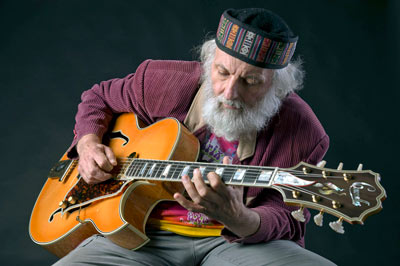 “As emotionally poignant as it is damning, Inch?Allah is a wonderfully crafted film that will move you in a way unlike most films revolving around terrorism and conflict. It is an uncompromising look at the collateral of the decades-old conflict in the Middle East, venturing outside the realm of politics and political biases and presenting a realistic portrayal of the human cost of this conflict.”
“As emotionally poignant as it is damning, Inch?Allah is a wonderfully crafted film that will move you in a way unlike most films revolving around terrorism and conflict. It is an uncompromising look at the collateral of the decades-old conflict in the Middle East, venturing outside the realm of politics and political biases and presenting a realistic portrayal of the human cost of this conflict.”
– Asif Hameed, Cadence Canada, 2012
“In the end, the effect of the sinuous, snaking drama?which elegantly traces a timeline stretching from contemporary Quebec to war-torn Lebanon of the 1970s and back?is like a tripwire. It knocks you off your feet and leaves you shaken. It is no surprise that it was nominated for a Best Foreign Language Film Oscar.”
– Michael O?Sullivan, writing about Incendies in The Washington Post, 2011
Luc Déry meets me at Café La Rue et Fils in Montreal on a crisply cold and brilliantly sunny May morning. The café is crowded with professionals tanking up for the morning fray, so he suggests we conduct the interview at one of the tables outside.
He’s a serene soul with kindly blue eyes and a reserved politesse, and is apparently quite well known here?our discussion is often punctuated by greetings as people come and go.
It hasn’t been easy to get an interview with this award-winning film producer; I’d started asking last year, but at that time he was busy at the Cannes film festival; Déry and Kim McCraw are the producers of micro_scope Films, a rapidly rising star in Canadian independent film.
How it All Began
Luke had started out his academic life studying biology when a fascination with film got the better of him.
“I loved films like everyone else,” he says, but had never considered film as a career. I was studying biology, but I took a course on Bergman as an elective, and that turned out to be much more interesting than biology.”
Before that, his upper-middle-class Quebecois background granted him access to the arts, which helped him cultivate the aesthetic required to produce finely crafted films. But when he made the decision to devote his career to film, the path wasn’t immediately clear.
“At first I wanted to direct,” he confesses, “but when I compared myself to friends who were really talented in that area, I realized my gifts might be better put to use in production, so I decided to do a BA in Media Administration.”
After graduating he worked with a film distribution company; the valuable insider knowledge and experience he gained there prepared him to set up micro_scope in 2002.
Since then the young company’s productions have steadily garnered positive attention from some of the world’s finest film festivals. Intelligent, meaningful, and thoroughly engaging, micro_scope films proved to be entertaining and accessible, gaining both critical and popular kudos.
Picking Great Projects
How does micro_scope keep on picking such winners? It looks like the great projects were simply there and that micro_scope was simply savvy enough to know what was both doable and culturally significant.
“We look for a universal appeal,” says Luc. “We also look for writer-directors who have a great vision and who can be trusted to follow through on it. So far we’ve been finding them.”
Micro_scope is noted for the creative genius shining through its films, but in the last few years this creative genius has come in the form of three superlative features?Incendies, Monsieur Lazhar, and Inch?Allah?that are all based in some way in the Middle East. Coincidence? In a way, yes.
“It started with Incendies,” says Luc, “and that film opened doors to the other two. We were very careful not to try to address specific regional issues in these films. they’re about the Middle East?and the world?in general. We were careful not to make Incendies a film about Lebanon or Incha?Allah a film just about Palestine. And in Monsieur Lazhar we wanted to address immigration issues.”
Luc also humbly credits his carefully selected team for micro_scope’s successes. Some of the people he says have been most influential in micro_scope’s success are directors Philippe Falardeau, Denis Villeneuve, and André Turpin, as well as producers Martin Paul-Hus, Lorraine Dufour, and Roger Frappier.
A Bit of a Clash
As one would assume, shooting films in the Middle East requires vigilance, preparedness, and diplomacy. A case in point:
“We were shooting Incha?Allah,” Luc recounts, and we needed to recreate an outdoor café scene that takes place in Jerusalem. For all kinds of technical reasons we decided to recreate it in in Aman, Jordan. So we set up a café scene with Hebrew signs and Hasidic Jewish characters walking around.
“There was also a bomb in that scene. So there was a bit of a clash dealing with onlookers who didn’t know what was going on.
“Even more interesting was the wall. We had to build part of the Jerusalem Wall in Aman. No one could understand why we were building a wall in the middle of a dump. We had to talk to the press that day to clear it up.”
Current
What’s micro_scope working on now? “we’re always working on 10 or 12 projects with the goal of completing two a year. Right now we have a project in South America.”
Considering the source, this sounds like an exciting direction.
Wanda also penned the poems for the artist book They Tell My Tale to Children Now to Help Them to be Good, a collection of meditations on fairy tales, illustrated by artist Susan Malmstrom.


